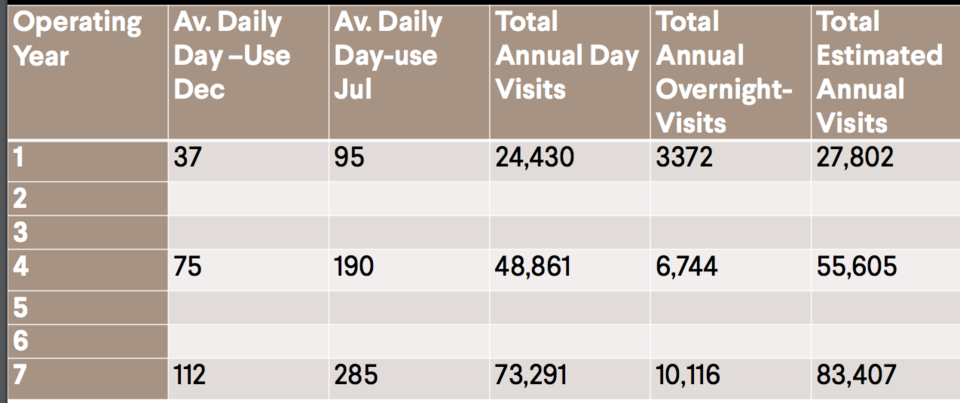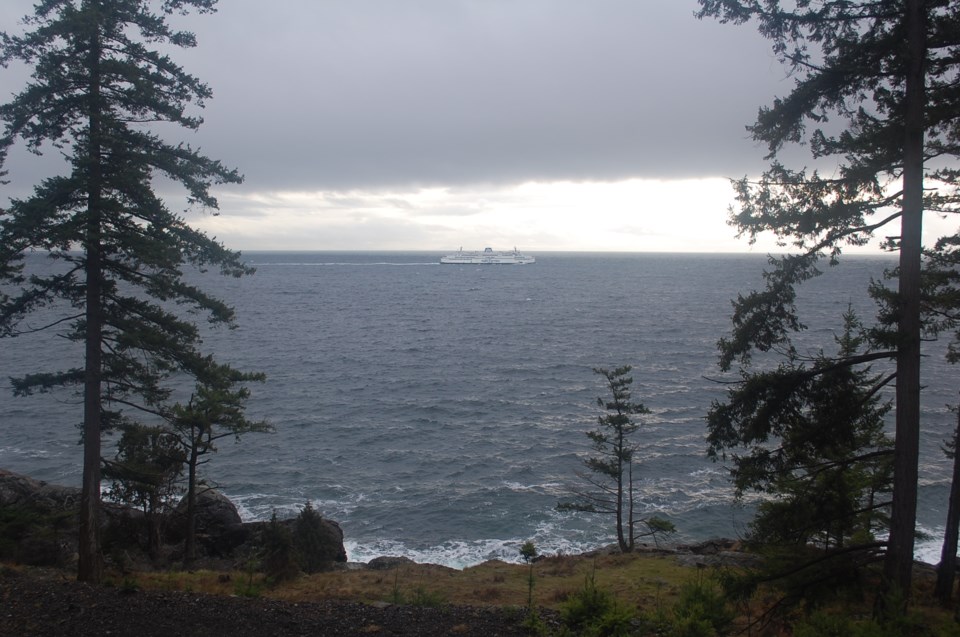A date for one of the key checkpoints in Metro Vancouver’s park proposal at the Cape has been set for later this month.
In two weeks council will receive draft bylaws from staff which would amend Bowen’s Official Community Plan (OCP) and Land Use Bylaw (LUB) to allow for overnight camping on the 97-hectare site. The land – currently zoned Rural Residential 1 – is ready to accommodate a park, but needs sign-off from the municipality (BIM) to reclassify it as Park zoning, which would permit the camping component.
It’s this element of Metro Vancouver’s proposal which has become the main sticking point in the project, and has led to fierce debate at the local level. An online petition opposing any overnight camping has gathered more than 1,300 signatures, and survey results from Phase 1 of Metro Van’s engagement process showed 57 per cent of Bowen respondents (590/1,029) do not support the project as it stands. Supporters in the same survey totalled 198 (19%), with 152 (15%) saying they needed more information and 89 (9%) stating they were neutral.
These numbers were vastly different from survey respondents outside of Bowen, with 85 per cent (592/696) in support of the park proposal. Opponents numbered 71 (10%), undecided 15 (2%), and neutrals were 18 (3%).
Tuesday was a major decision day for the park’s future, and began with a Committee of the Whole (COW) meeting where Daniel Martin presented project feedback from Bowen’s various committees. While all groups submitted feedback specific to their focus, several shared themes emerged among all committees.
Support was strong overall for the park aspect of the plan, but the number of campsites – up to 100, with around 35 envisioned for drive-in – was identified as a major concern. Traffic issues were also raised, including the effect on the site’s lone entry point via the residential Whitesails Drive.
Ferry capacity was discussed too, especially in the wake of last year’s summer season which featured frequently overloaded sailings. Committees also expressed the desire for more details on financial implications from losing tax revenue from the 24 lots, emergency preparedness planning, and a better grasp of Metro Vancouver’s management plan for operating the park.
Committees and Councillors still seeking plenty of information
Because of the many questions still needing answers, and what committees all agreed was the magnitude of the project, director of planning Daniel Martin recommended a first reading date be established to hear the draft bylaws, but that the typical concurrent referral to committees be held off for now.
“The committees have given this great discussion… Going back to them without more information seems like it’s not the most productive use of their time. It’s better to go back to them when we have bylaws and also the information they’ve requested so that they’re in better shape to make a recommendation,” explained Martin.
Councillors also expressed they needed more information from Metro Vancouver, and for clarification on a trio of submissions by the organization. An Ecological Background Report – identifying ecological communities and species at risk, and provides operating measures for the park – was generally well received, but the two other reports received more scrutiny from the elected members.
One of these is a Trip Generation Report prepared by engineering consultant company Bunt & Associates estimating traffic levels if campsites are approved. Martin says he expects revisions to this report given staff questions over the numbers used for the estimations. The report also said a Transportation Demand Management Plan and Transportation Impact Assessment should be conducted.
Metro Vancouver also developed a phased implementation plan where their vision for the park would be rolled out over three stages in 2025, 2027, and 2029. Park offerings would be increased each stage, and the estimated 100 campsites introduced one-third at a time.

The report also contained estimates for annual visitors through the first seven years of operation, with annual overnight camping numbers ranging from 3,372 to 10,116 over that period, and total visits rising from 27,802 to 83,407 over the same time. Metro Vancouver used visitors to the Killarney Lake area of Crippen Park to create these estimates.

“I’m feeling like some of these reports are more marketing than research. If we’re trying to get information to help us all decide to whether or not, and how, to implement this, I think we really need good, reliable information and research,” said Coun. Judith Gedye, noting that the Transportation Advisory Committee felt much of the information in the Trip Generation Report was unreliable.
“Some of those basic assumptions were quite unrealistic,” added Gedye.
Coun. Tim Wake also had reservations over the Bunt report. “I think what we’re missing here in the Bunt report, or any report on traffic volumes, assumes it’s just going to be business as usual moving forward… I don’t understand how we can forecast any numbers when we haven’t first figured out what we’d like to have… The numbers of people coming to the park, and the number of cars coming to the park, are the big issues.”
Desire to move project forward for now
While council was in consensus much more information is needed, they were also unanimous in agreement that they didn’t want the project to fizzle out at this stage. Metro Vancouver has a pair of meetings later this month where the future of the park will be discussed.
“Looking at the information that’s been provided to us of late, and in particular I’m looking at the phased-in approach that they’re suggesting – which at one point we were told point blank is not going to happen… they’re making an effort,” said Coun. John Saunders about Metro Vancouver’s recent work.
“At some point there’s got to be good faith on both parties if we’re going to make something happen here… There’s a ways to go for sure, but Metro has shown the good faith in the sense that they’ve listened at least to some of the things we’ve said… If we’re going to move ahead at all, we’ve got to decide within the next week or so, and make a strong signal to them that yes we do intend to move ahead and we care about this,” said Saunders.
Following the recommendation at the COW, later that night council voted unanimously to send the OCP and LUB bylaw amendments for first reading at their April 24 meeting. Another unanimous vote passed for council to write a letter to the Metro Vancouver board expressing their desire to move ahead with the Cape Roger Curtis park project.
But the decision to advance the project shouldn’t be seen as a guarantee of the rezoning application.
“I don’t feel that we’re anywhere close to consensus. There’s a strong ‘yes’, and there’s a strong ‘no’, and there’s everything in between,” said Gedye.



